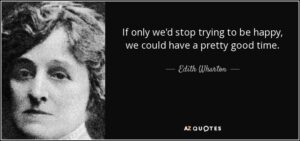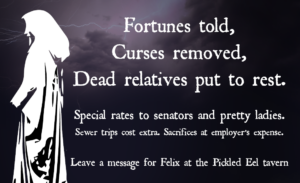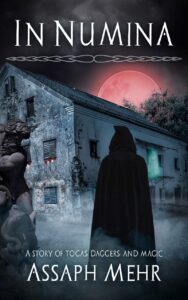
Photo credit: Stefan Ringler, Unsplash
by Debbie Burke
Good morning, TKZers, and welcome to another Brave Author who submitted the first page of a domestic thriller entitled A Jealous God. Please enjoy then we’ll discuss.
~~~
Alice
1979
Preacher Gilroy slammed a fist against his Bible and declared God was not their friend. Thirty seconds into his sermon and sweat already dripped from his forehead. Black polyester stuck to his chest. Beside the pulpit, Alice’s father nodded in agreement from his throne, legs crossed and hands draped over the armrests and a rusty house fan buzzing at his feet. Poor Gilroy was about to melt into a puddle, but at least her father was comfortable.
“If I offer you an apple today,” Gilroy said. “Or promised you an orchard tomorrow, land and trees stretched out so far you can’t even count them all, just as certain as the sun rises in the East you’d choose the apple in my hand. Your hunger consumes you.”
Last week it was a penny over a dollar, the week before a lamb over the flock. God still wasn’t their friend.
Alice waited from her usual spot in the back pew near the side door where no one dared to join her. Her mother and four siblings squeezed into the front rows with the rest of the congregation, a line of sticky bodies shoved together like the candies in her Bozo the Clown Pez Dispenser she’d just bought for her seventeenth birthday. But that’s how it’s always been, even in the old church, before Tom and the accident. The closer everyone sat to her father and Gilroy, the further they were from eternal hellfire.
Gilroy held an apple up to the heavens. “You want—you need—something you can see, touch. You want to squeeze it in your hand, hear a crunch as you bite into the skin, feel the warmth in your empty belly.”
A man Alice had never seen before stood guarding the side door. After Tom went away, she noticed strangers, took inventory of their details to keep them real. Mid-twenties, short dark brown hair, clean-shaven, and a long thin scar above his right eye. A dry, starched white shirt buttoned to the collar and tucked into ironed dark blue trousers. Polished brown leather boots spared from the five inches of mud at the foot of the front steps.
“So you hold out your hand and take all that Satan has to give,” Gilroy said. “You’re proud, arrogant. Condemning your immortal soul into everlasting torment.”
Alice slid closer to the aisle. The stranger followed.
~~~
Okay, let’s dig in.
This is a strong example of how to start off a story with conflict and tension even though there’s minimal action. The scene is set, several characters are introduced with brief but effective descriptions, and questions are immediately raised in the reader’s mind.
What the heck is going on with a teenage girl in church who’s being shunned by family and perhaps menaced by a stranger?
What struck me most about this beginning was the author’s excellent use of sensory detail to set the scene. The reader feels the sticky, oppressive humidity and perspiration running down his or her torso. Not only is the temperature stifling, so is the mood. As the preacher instills fear of eternal damnation in his congregation, the reader feels something horrible will soon occur.
Let’s go through a few lines (in blue) in closer detail. My suggestions are in red.
Preacher Gilroy slammed a fist against his Bible and declared God was not their friend.
Punch up the first line by showing Gilroy’s exclamation rather than telling:
Preacher Gilroy slammed a fist against his Bible. “God is not your friend!”
Black polyester stuck to his chest.
That’s a great image—who hasn’t felt clinging, sweaty fabric that doesn’t breathe? But perhaps add a more specific detail:
The black polyester clergy shirt stuck to his chest.
The foreboding is already strong but Brave Author might add smell—the rank odor of nervous sweat.
When the focus shifts from Gilroy to Alice’s father, suggest you drop down and start a new paragraph:
Beside the pulpit, Alice’s father nodded in agreement from his throne, legs crossed and hands draped over the armrests and a rusty house fan buzzing at his feet.
Maybe add a few words of explanation about the throne and why Alice’s father enjoys the elevated status.
Suggest you get inside Alice’s POV as soon as possible.
Alice watched her father nodding in agreement from his throne beside the pulpit. His legs were crossed and hands draped over the armrests, a rusty house fan buzzing at his feet.
Alice waited from her usual spot in the back pew near the side door where no one dared to join her.
“No one dared join her” nicely conveys not only her physical position in the church but also her social position in the congregation. She is separate from her family and shunned for reasons not yet known. The reader wants to find out why. Well done.
Nice job of slipping in Alice’s age, 17, as well as time reference with the Bozo the Clown Pez dispenser. Bozo adds irreverent humor—another hint at Alice’s attitude toward these pious folks.
…a line of sticky bodies shoved together like the candies in her Bozo the Clown Pez Dispenser she’d just bought for her seventeenth birthday. But that’s how it’s always been, even in the old church, before Tom and the accident. The closer everyone sat to her father and Gilroy, the further they were from eternal hellfire.
Suggest you move the line highlighted in red to its own paragraph. It’s clearly an important hint to the story conflict and shouldn’t be buried in the middle of a paragraph. The reader wonders who Tom is, what was his relationship with Alice, what accident, and did the accident happen in the “old” church.
…a line of sticky bodies shoved together like the candies in her Bozo the Clown Pez Dispenser she’d just bought for her seventeenth birthday. The closer everyone sat to her father and Gilroy, the further they were from eternal hellfire.
But that’s how it’s always been, even in the old church, before Tom and the accident.
The next paragraph offers more vivid sensory details.
Gilroy held an apple up to the heavens. “You want—you need—something you can see, touch. You want to squeeze it in your hand, hear a crunch as you bite into the skin, feel the warmth in your empty belly.”
While the pastor talks, the reader sees the image, feels the apple, hears and tastes the crunch. The verb choices squeeze and bite reinforce the underlying message of punishment. Good job.
A man Alice had never seen before stood guarding the side door. After Tom went away, she noticed strangers, took inventory of their details to keep them real. Mid-twenties, short dark brown hair, clean-shaven, and a long thin scar above his right eye. A dry, starched white shirt buttoned to the collar and tucked into ironed dark blue trousers. Polished brown leather boots spared from the five inches of mud at the foot of the front steps.
A stranger on guard foreshadows more conflict for Alice. Nice tight description of the man, especially the scar which makes him more threatening. His dry, starched shirt suggested he’s cool and removed, compared to everyone else who’s sweating.
But the last sentence of that paragraph was confusing.
Polished brown leather boots spared from the five inches of mud at the foot of the front steps.
The reader’s attention is jerked from the man’s description to five inches of mud at the foot of the front steps. Is the mud inside or outside the church? If there’s mud at the entrance, why are his boots still clean?
Suggested rewrite in Alice’s deep POV:
How had his brown leather boots stayed so polished and shiny after slogging through five inches of mud at the entrance steps?
This line was confusing: Alice slid closer to the aisle. The stranger followed.
The stranger is standing guard at the side door. Alice is sitting in the last pew. When she slides across the pew, apparently intending to escape, how does the stranger follow? Does he sit in the pew with her and slide closer? Rewrite so the reader can visualize exactly the position of each character and how they are moving in relation to each other, the pew, and the side door.
Big picture: This unfortunate teenager apparently committed an unknown sin and is shunned by her family and the congregation. The reader wants to find out what she did. Her wry comments on the fire and brimstone sermon, the minister, and her pompous father show her rebellious spirit and make her likable.
What transgression was so serious that a stranger follows Alice and tries to keep her from escaping?
The title A Jealous God is compelling and effective. It conjures up fearful wrath and vengeance, fitting themes for the domestic thriller genre. Deuteronomy 4:24 reads: “For the Lord your God is a consuming fire, a jealous God.”
I did a short search and found only two novels with that title, one by John Braine published in 1964, and one by Simon Mawer published in 1996. Surprisingly, the title hasn’t been used that often, making it a good choice.
The exact locale isn’t specified but I’m intrigued enough to wait a few pages to find out where the story happens.
The heading “Alice 1979” sets the time period. It also might indicate this scene is a flashback.
The tweaks are minor. Clarify a few points mentioned above. Rearrange several sentences to increase the dramatic impact.
The Brave Author starts with action, introduces a sympathetic character in trouble, sets the scene, shows conflict, and raises questions. A lot of tension and suspense thrum in this first page.
The writing is vivid and full of sensory detail that puts the reader into the stifling, oppressive atmosphere beside Alice. I want to escape as much as she does. I also want to find why she’s in this situation and if she can get out of it. Compelling start!
~~~
TKZers: What do you think of this first page? Would you keep reading? Any suggestions for the Brave Author?


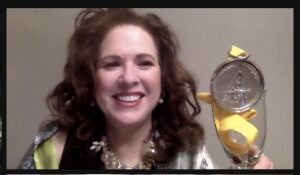
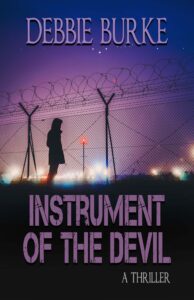

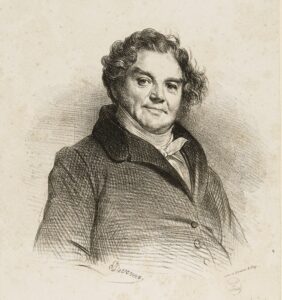

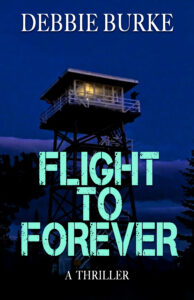

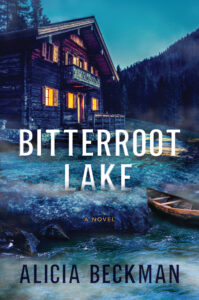 When four women separated by tragedy reunite at a lakeside Montana lodge, murder forces them to confront everything they thought they knew about the terrifying accident that tore them apart, in Agatha Award-winning author Alicia Beckman’s suspense debut.
When four women separated by tragedy reunite at a lakeside Montana lodge, murder forces them to confront everything they thought they knew about the terrifying accident that tore them apart, in Agatha Award-winning author Alicia Beckman’s suspense debut.





